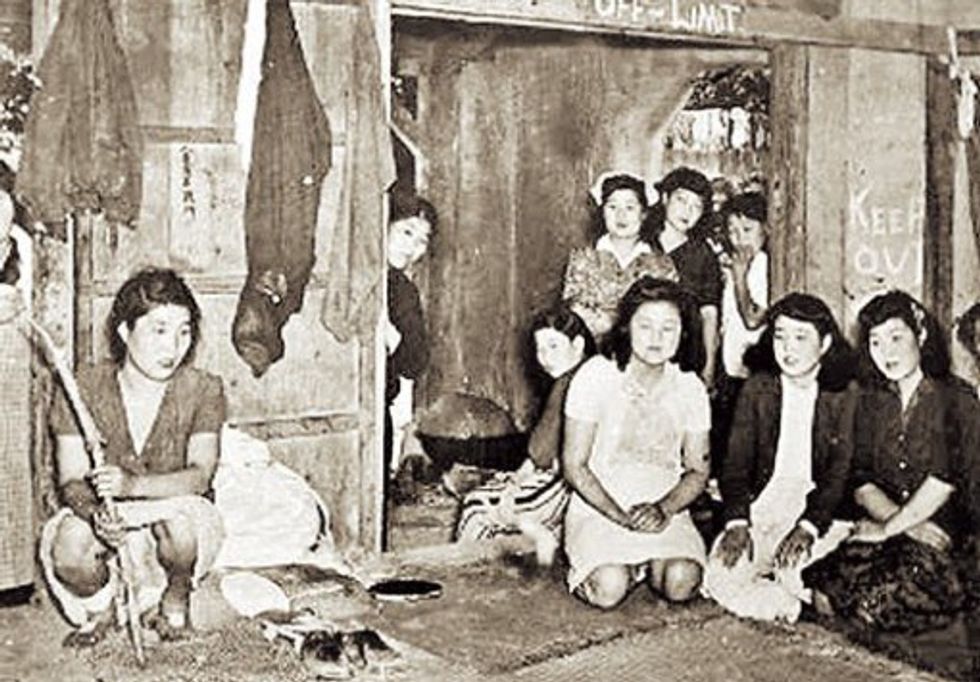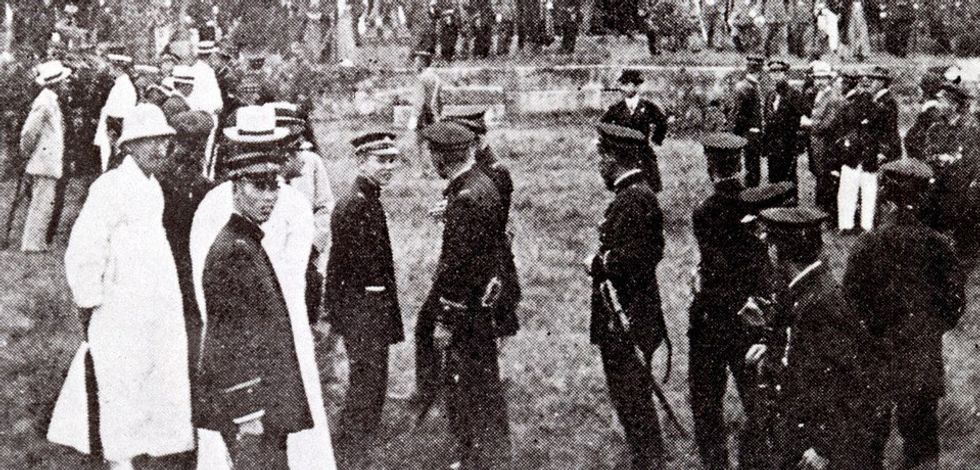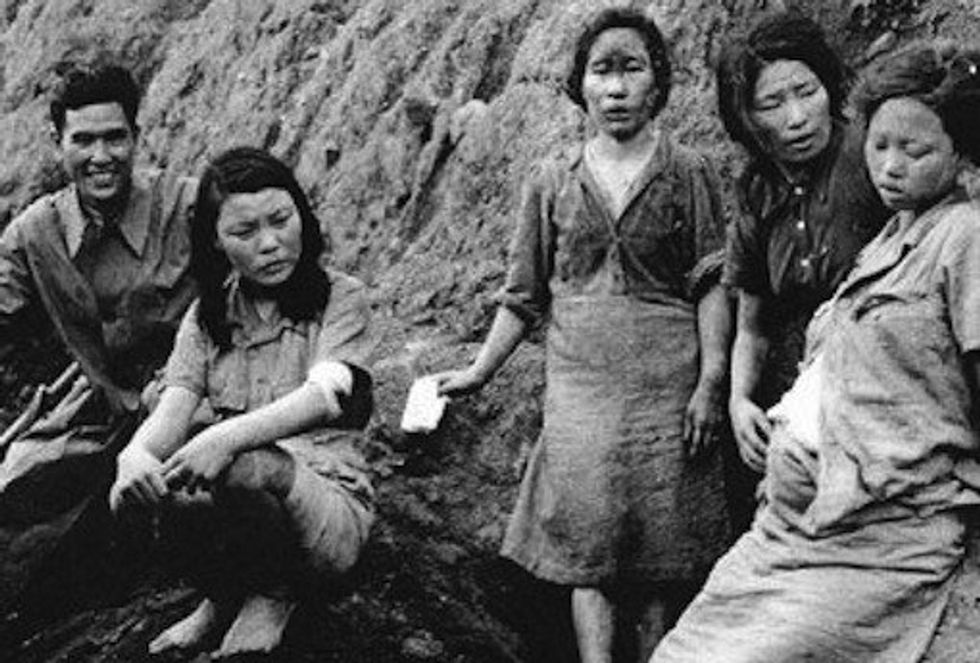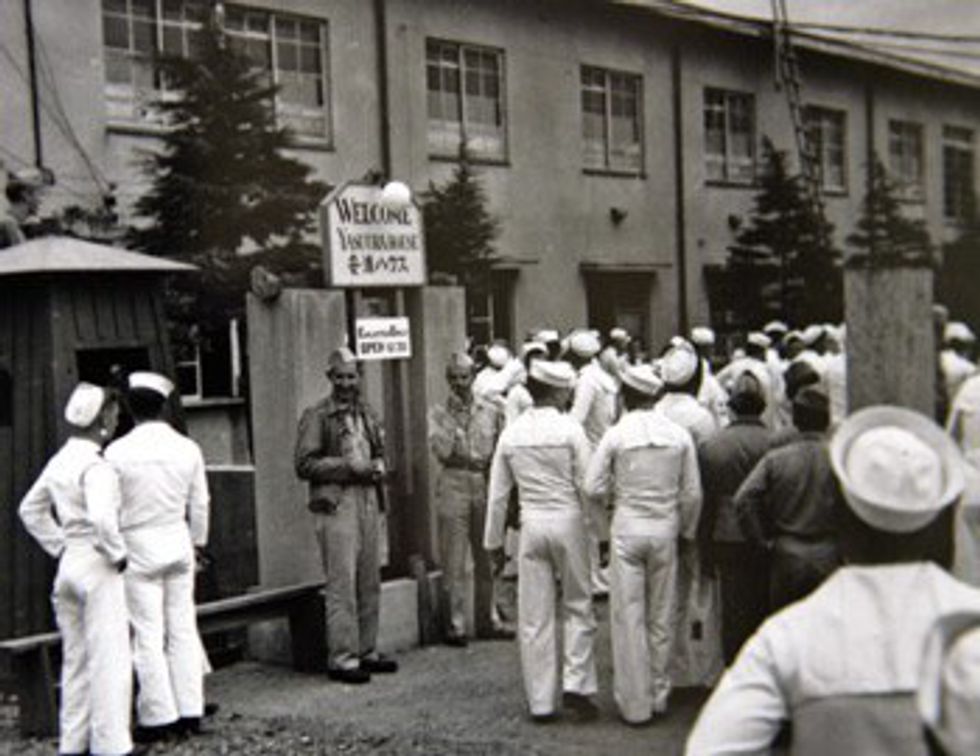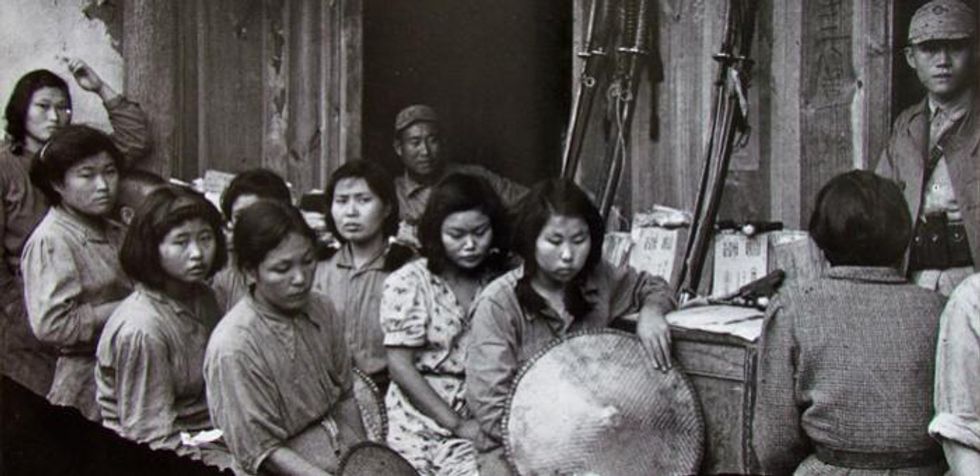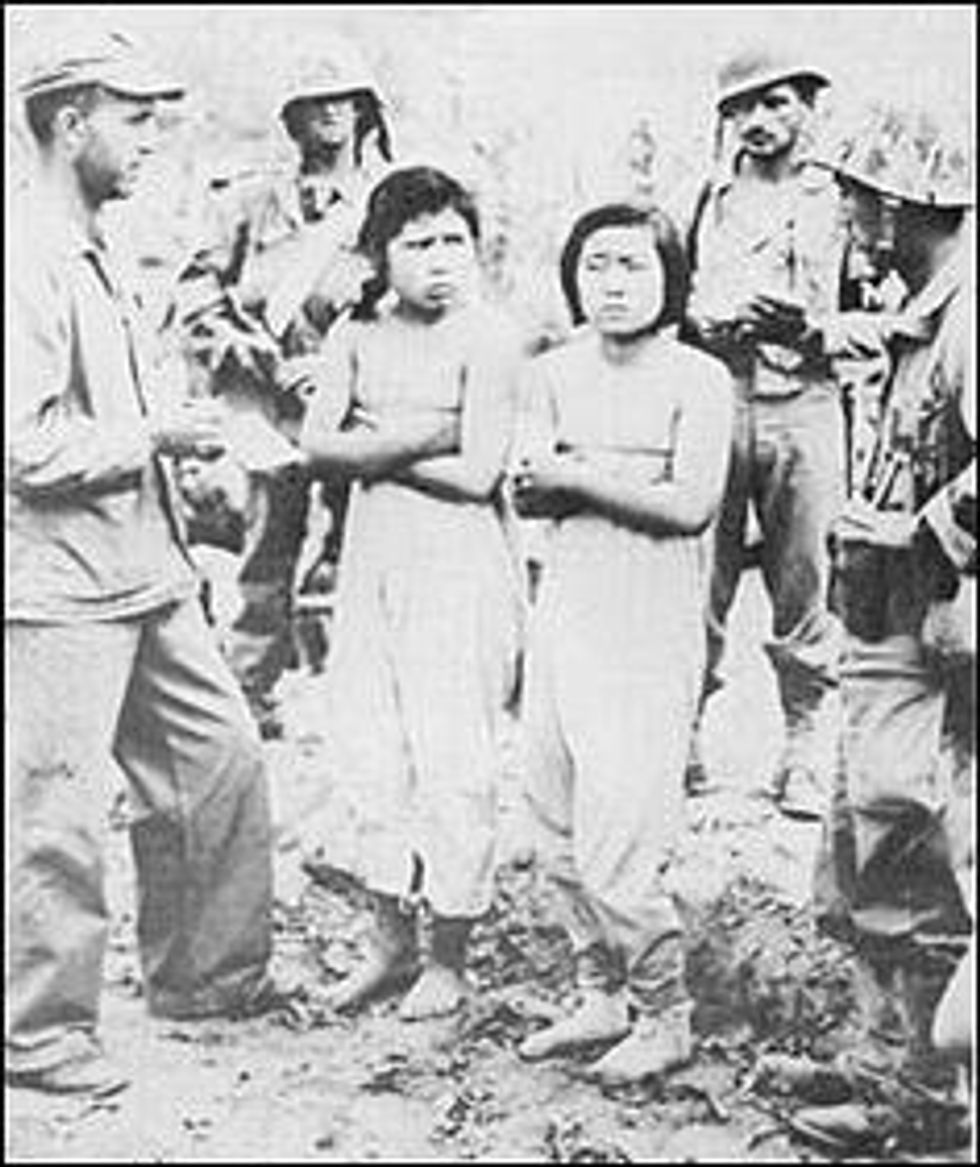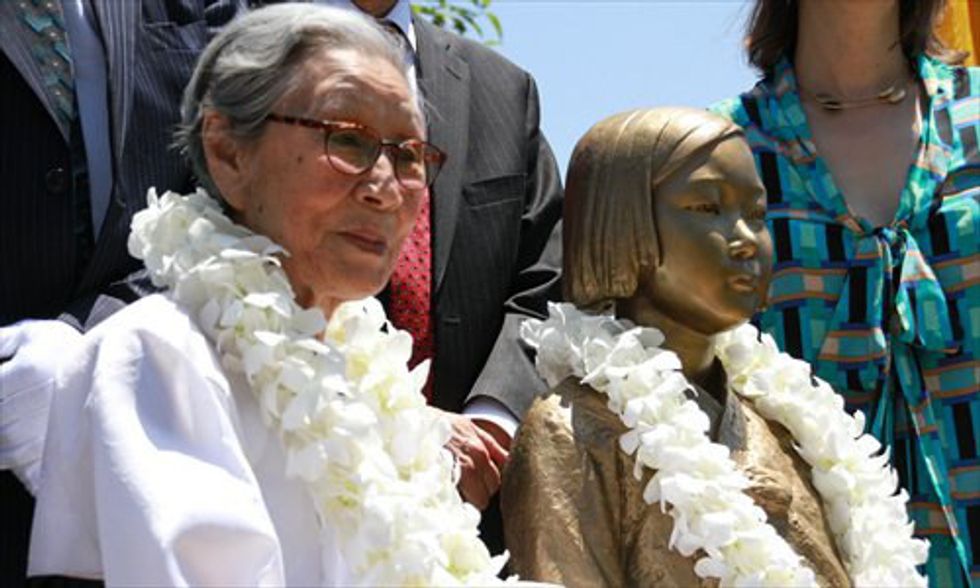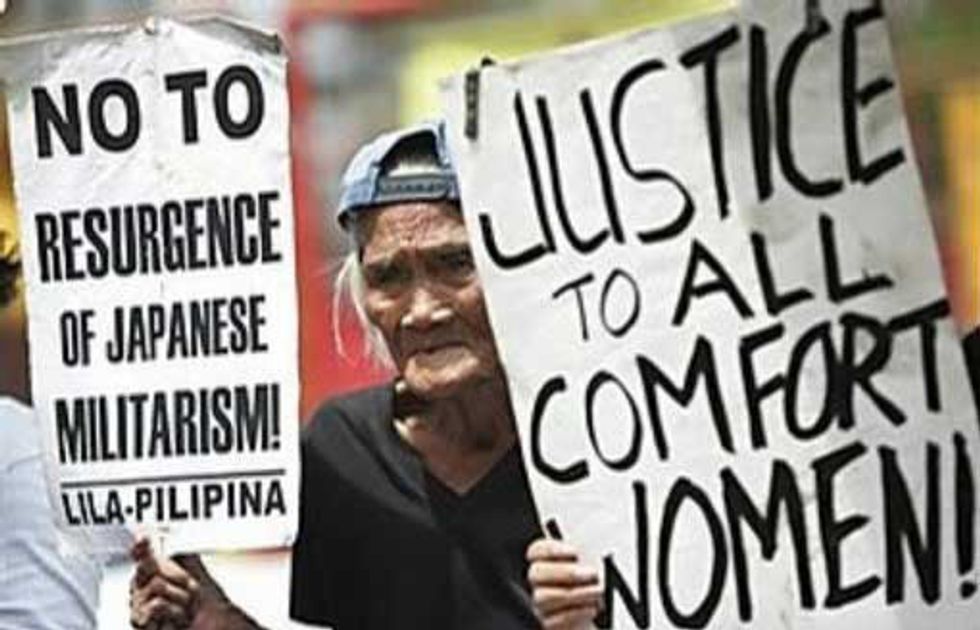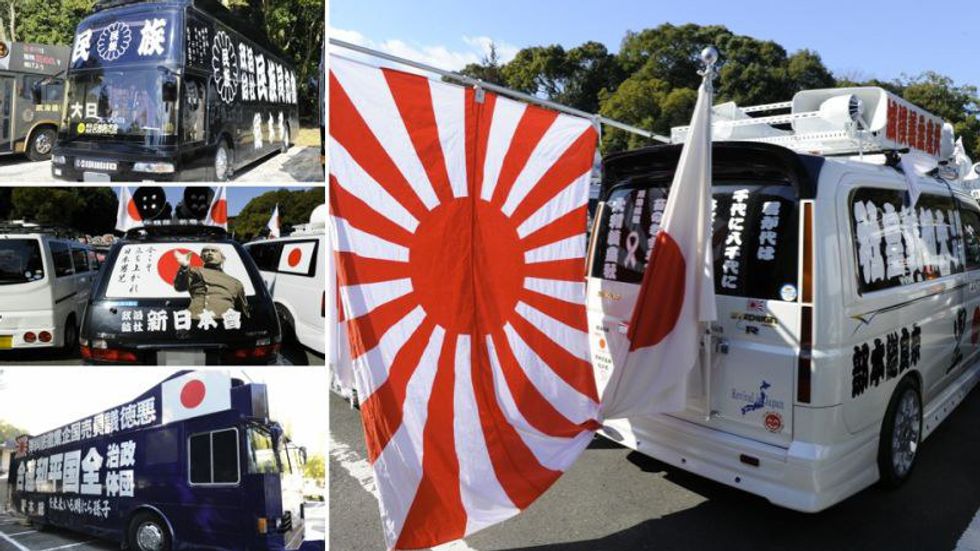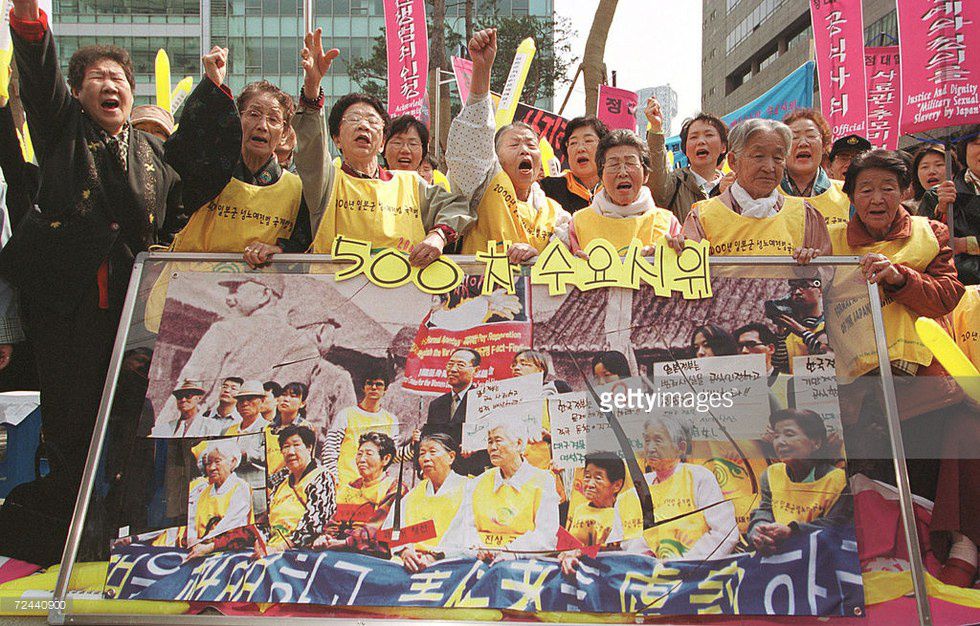Acknowledging wrongdoing is taught at a young age as a moral lesson to show respect to others and gain maturity through an experience. It is through these encounters that relationships are brought closer and consequences become minor. These concepts can be applied to diplomatic relations. Recognizing offense against another country is a sign of respect for a country’s people and their culture.
In relation to Japan, the denial of implementing military comfort women stations, harboring comfort women and erasing this part of history in Japanese school textbooks were ineffable acts against the nations of those under Japanese imperialism during World War II. These acts of incivility strained Japan’s relationships with numerous nations, hindering the international community’s view of the country. The practice of sex slavery of young girls and women exhibited a derogatory attitude towards the nations subject to Japanese sovereignty and is a war crime that should be taken to the United Nations to gain international affirmation of the injustices done to comfort women.
Background
The practice of using young females to satisfy the soldiers was coined “comfort women” by the Japanese military. During World War II, Japan became a powerful nation in Asia. Countries colonized by Japan were compelled to observe the Japanese language and culture. As Japan was in its Industrial Age and did not have many raw materials, the country was eager to gain access to raw materials such as rice from Korea and sugar from Taiwan. Although their presence in Asia was growing, the morale of the Japanese soldiers was waning. The rare presence of women and the fear of death resulted in subsiding drives to fight. To compensate for the military’s declining morale, the Japanese government created military comfort women sites to boost the low war spirits of its military. To find people to serve in comfort women posts, military officials turned to the young women and girls in the nations that Japan had control over.
The Japanese Navy stationed in Shanghai, China started the use of comfort women stations. Comfort women were young girls and women who were forced into sex slavery. Females were led to comfort women houses to serve hundreds of soldiers in a day. In some cases, females were conned into working in military stations under a lie that they would gain jobs at factories in different countries. As prostitution was being banned at the time in China, the Japanese Foreign Ministry masked the identities of comfort women with new identities of restaurant servers.
The system of comfort women was also used to “prevent” the instances of rape. Rape incidents rose in the Japanese army due to the lack of women. To combat this issue, the comfort women system was implemented to prevent forced sex from Chinese civilians. As rape incidents dwindled in numbers and motivation rose in the military, the comfort women organization was deemed successful. Approximately 200,000 females, some as young as eleven years old, were dragged away from their families and suffered unspeakable acts committed against them.
Life As A Comfort Woman
In the military bases, comfort women were frequented by crowds of soldiers. Women usually performed their duties from 8 a.m. to 5 p.m. Long hours put a strain on the lower half of the women's’ bodies. Many could not even walk after the last soldier they served of the day. Although soldiers were required to wear condoms, some chose not to use them, and the conditions of condoms were grungy. Condoms were reused by washing and drying them after each use. This method of sanitizing was ineffective as it did not get rid of sexually transmitted diseases or account for those with holes. The covetous decisions of the soldiers and flimsy state of condoms resulted in many comfort women becoming pregnant and/or acquiring sexually transmitted diseases or infections. Comfort women had access to military doctors to test for sexually transmitted infections and diseases, but this did not prevent transmission from happening. These diseases and infections sometimes led to permanent damage in the bodies of survivor comfort women, such as the inability to have children. Along with being mistreated sexually, the living conditions were just as shoddy.
Abhorrent living conditions added on to the obstacles comfort women faced at the military sites. The comfort women houses were not well-kept stations or buildings. Most rooms consisted of wood floors, a higher wooden platform for sexual activities and a wardrobe. These rooms may sound homely, but they were far from it. The floors were never cleaned. The wardrobe only consisted of sheets and no other clothes, besides the single dress worn by the sex slaves. Comfort women were also dressed shabbily, usually in thin white dresses no matter what the weather was like. Along with ragged attire, the food was also barely provided for the comfort women. Most usually had no time to eat or sleep due to the amount of soldiers they served in a day. When food was provided, it usually came in meager portions and was prepared in unsanitary conditions. Due to these conditions, comfort women were malnourished and sleep-deprived during their time in the military stations.
Comfort women were faced with harsh punishments when they tried to fight back. When refusing to participate in the activities performed in services, females were beaten by the soldiers and sometimes killed. If a comfort woman became pregnant, doctors would suggest getting an abortion or she would be killed. Abortion was suggested to get rid of evidence of comfort women. If caught running away, comfort women were also beaten. Even after escaping, these women faced danger as they were looked down upon in society and had to find a way home. Comfort women ended up working for shops and restaurants to earn money to go back, but also suffered sexual assaults from business owners. At the end of World War II in 1945, Japan closed all comfort women stations.
Life After World War II
After the end of World War II, surviving comfort women chose one of two paths: a path of resilience or a path of silence. Ms. Kim Buk-dong (pictured above) is a surviving comfort woman who has been active in creating awareness about the issue at hand and achieving justice for all comfort women, living or dead. Her years working as a comfort woman led to tumors forming in her uterus. These tumors formed from constant exposure to sexually transmitted diseases, infections from filthy floors and rough treatment from the soldiers. As a result, her uterus was removed, and she became unable to bear children. She shares her struggles and consequences of being the victim in the comfort women practice in front of comfort women rallies all around the world to provide insight on the atrocities the Japanese military caused on more than 200,000 women.
Although all comfort women were emotionally traumatized, some were more traumatized than others. Some women were ashamed to return to their home countries after the war ended and stayed in the country they were in, such as China. One surviving comfort woman did not return to her home country until 2001, nearly half a century after the war ended. Others chose death rather than sharing their conflicts to their family. These women committed suicide onboard ships leading them back to their homes. Another population of comfort women ended up with mental disorders, such as post-traumatic stress disorder (PTSD) due to the emotional stress placed on them during their time in the comfort women stations. Despite the amount of evidence, the Japanese government has had mixed views and reactions towards the creation and use of comfort women.
The Issue of Compensation
Ultra-conservative members of the Japanese society have stalled the potential to rekindle the relationship between Japan and the countries it formerly colonized. In the view of the conservative Japanese, the definition of “comfort women” is paid women who chose to do that work. These women were bravely helping the empire through this system of encouraging the Japanese military in the empire’s quest to conquer Asia. The conservative party also stated that comfort women voluntarily came and were doing a service. This notion of “voluntarily serving” came from the recruiter method. To bring women to comfort women stations, the Japanese military hired recruiters, some who even spoke the language of the colony, to find young girls and females for their military stations. These recruiters advertised factory jobs or sometimes even just took the women. The ones who left their families to work in factories did voluntarily come, but they were conned into doing so. The definition of comfort women is also false. Comfort women were never paid for the suffering that they endured. Conservatives argue shelter and food are both necessities that count towards payment. Women were caged in the so-called shelters. The shelters were nothing but prisons that prevented young women from escaping or being heard. The food was also meager and barely provided. Malnourishment was prevalent in the stations. The services they were forced to provide was not work; it was sex slavery. Comfort women did not want to offer their bodies to soldiers. They were forced to perform intimate acts with strangers and deprived of their basic rights. They deserve compensation for the pain they endured and the human rights that haven’t been given to them even now.
Is an apology sufficient compensation for this issue, and will the apology be accepted to the affected victims? Japan has issued many acknowledgments in the past for the practice of comfort women. Victims have stated that although the number of apologies is many, there is no depth or sincerity behind those admissions. Chief Cabinet Secretary Yohei Kono (pictured above), in August 1993, stated that the Japanese government “shall face squarely the historical facts as described above instead of evading them, and take them to heart as lessons of history. We hereby reiterate our firm determination never to repeat the same mistake by forever engraving such issues in our memories through the study and teaching of history.” A little over a decade later, the Japanese government was caught trying to change history in their school textbooks. This caused an uproar in the Korean community as this went against what the Japanese government had previously stated and that Japan was trying to erase their past by not informing their youth generation. If an apology cannot suffice this perplexing issue, what can?
Current Activist Movements
For years, former colonies of Japan, such as China and South Korea, have been attempting to bring this issue to the United Nations. Although countries like China and South Korea are willing to go to the United Nations, Japan expressed reluctance to try the issue of comfort women as a war crime. In August 2014, the United Nations human rights chief, Navi Pillay called out Japan for its futile efforts to create a substantial resolution toward comfort women. Pillay also stated that “issue of 'comfort women' is not relegated to history, but continues to impede violations of victims’ human rights." This is true in that surviving comfort women have been stripped of their human rights for not being given reparations for the atrocious events done to them during World War II. Comfort women are not only waiting for atonement, they are waiting for the global community to recognize their struggles, as well.
Although the comfort women subject is not well-known, global awareness has increased due to protests in major countries and the seemingly infinite efforts of the surviving comfort women. Since January 1992, comfort women and other supporters have been protesting in front of the Seoul Japanese embassy every Wednesday. Time may pass, but history is never forgotten. People are passionate about their country’s history because it was what their ancestors went through. Not only that, as another human, these injustices aren’t events to be left in the dust. Every case deserves a trial, and every victim deserves reimbursement for their lost time and lasting pain. In July 2015, the Korean American society of Virginia and Maryland joined forces with the Washington Coalition for Comfort Women Issues to rally in front of the Japanese embassy in Washington D.C. At the rally, Kim Buk-Dong was present to inform the Korean and American press about her experiences as a comfort women. Protesters called out Japanese Prime Minister Abe for denying the existence of comfort women and the Japanese government for saying that reparations were made in the treaty after World War II. These actions have increased the world’s knowledge on the issue and will continue to do so until justice is obtained for comfort women.
What's Next?
Former surviving military officials need to be tried for taking away human rights of women in their practice of comfort women and Japan needs to address this issue globally to be fully accepted by the former colonies of Japan. Young girls and women were sacrificed by the Japanese military for forced sexual services to raise the drive in their soldiers. In the essay, “Hoping Against Hope” by Nadezha Mandelstam, the author describes silence being the biggest crime against society. These young girls and women are not sacrificial lambs that should take the blame of a system pushed onto them. They were victims of horrid acts that no one should encounter in life. They deserve to be loud and be able to protest for the injustices done to them.
Silenced lambs still leave blood in the hands of the perpetrator.




